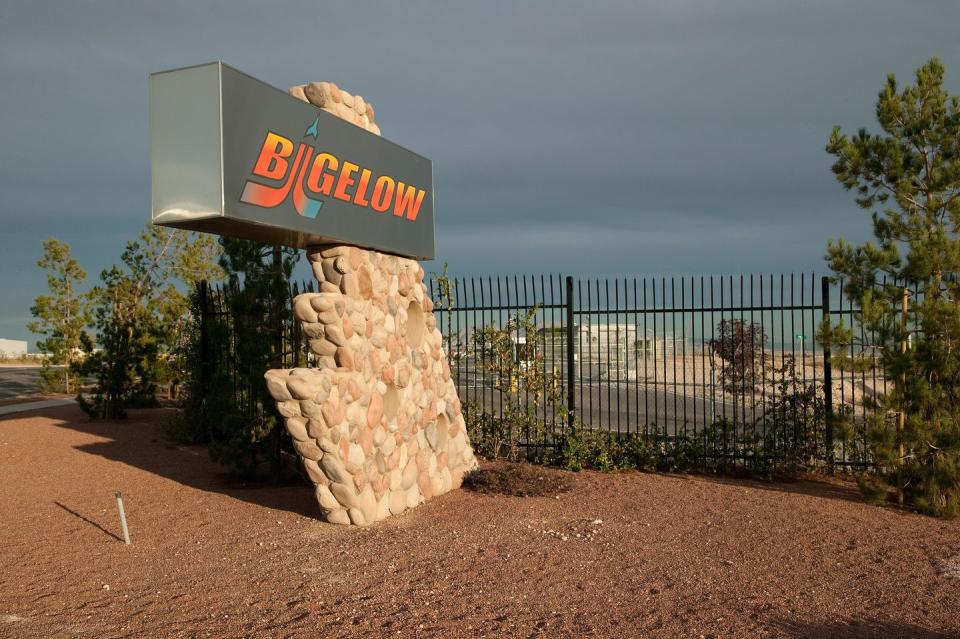America Is Selling Space, But Who’s Buying

Robert Bigelow, back of inflatable space hotels, has announced the formation of a new company to build and market space stations in Earth’s orbit, called Bigelow Space Ops.
During his announcement, the company’s founder made a point to paint a picture of a thriving U.S. industry: American-made hardware launching from American spaceports, leading the way into the orbital future. But what Bigelow and other space barons' business plans really want are for customers from other nations to emerge. "What we've always anticipated and expected is that we would be very involved in helping foreign countries to establish their human space programs,” Bigelow told reporters.
The U.S. private space companies working on crewed spaceflight projects have the same opportunity. Boeing and SpaceX are building capsules for NASA astronauts, but plan to sell these flagship rides to other clients. Chris Ferguson, director of the Boeing Starliner, told Space News last year that Boeing is “looking for participants in the form of countries, industries, and individuals that want to participate in this great business of human spaceflight." SpaceX already launches payloads for international customers, and has shown a willingness to send customers anywhere they want to go in the solar system - including a wealthy couple the company says has approached them with plans to fly around the moon in 2019.
These dreams tie into a central question of the commercial spaceflight movement: Now that industry is selling tickets, who’s taking the rides? No one knows for sure yet.
“The time is now to quantify in detail the global, national, and corporate commercial space market for orbiting stations,” Bigelow Space Operations’ website says. “This subject has had ambiguity for many years. BSO will be spending millions of dollars this year to establish concrete answers.”
America First... Then Everybody Else?
In the short term, delivering American astronauts to the International Space Station will be the cornerstone mission for this new wave of human spaceflight, says John Lodgson, founder of the Space Policy Institute at George Washington University. Beyond that, he says, the crewed launch market looks “rather vague.”

The first obvious (but overlooked) customer base would be astronauts from Europe and elsewhere, who need to travel to the ISS before any plans to privatize the station after 2024 come to fruition. Less clear is the possible demand from corporations from around the globe, who could desire to conduct research on to ISS or other research stations.
Then there are other nations who are not ISS partners, but who may want an off-the-shelf launch kit for their astronauts. A range of countries could be interested in such a ticket. “Thinking off the top of my head, the United Arab Emirates,” Lodgson says when prodded to name for possible customers. “Nigeria? Iran always wanted a human spaceflight program.”
Easing Exports Is No Coincidence
Another event last week - the meeting of the reformed Space Council - will have a direct bearing on Americans selling space services abroad. “The Council is looking into how reforming export controls plays into all of this,” Lodgson says.
At issue is the International Traffic in Arms Regulations (ITAR). Space rockets and military missiles have a lot in common, and for that reason, access to manufacturing facilities and launchpads is limited to citizens and U.S.-based companies. This makes sense for national security reasons, but it also could limit the marketing of space services.
For example, a spaceplane landing at an international airport could be subject to ITAR restrictions. A company bringing rockets to another nation clearly would. Would training an Iranian astronaut in a U.S. facility constitute a breach of ITAR? Yes, but the same would apply to an Australian or any foreign national on hte premises.
The Trump Administration’s Space Council has a clear goal to reduce regulations that hamper commercial space. This week the members directed former NASA official and Space Council executive secretary Scott Pace to conduct an export control policy review. It’s supposed to be done by January 1, 2019 - right around the time of the SpaceX and Boeing’s first crewed launches to ISS.
For Bigelow, being the first American company to offer a space station is great for the domestic market. But he also has to watch the global marketplace for competition. Lodgson says he’ll find it. “China has said that it’s space station is open to non-Chinese visitors,” he notes. “So where does that fit in to the future of human spaceflight?”
You Might Also Like

